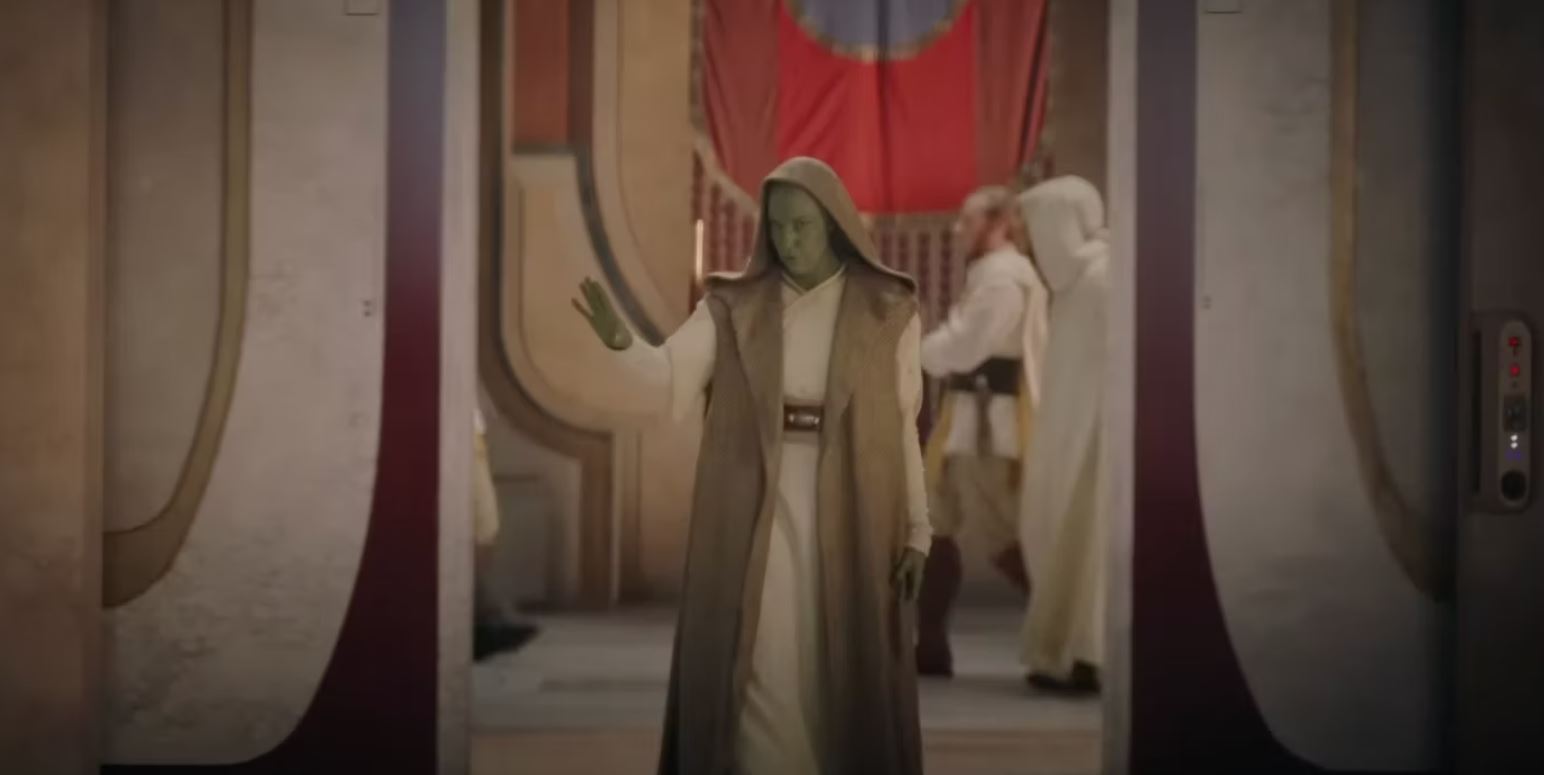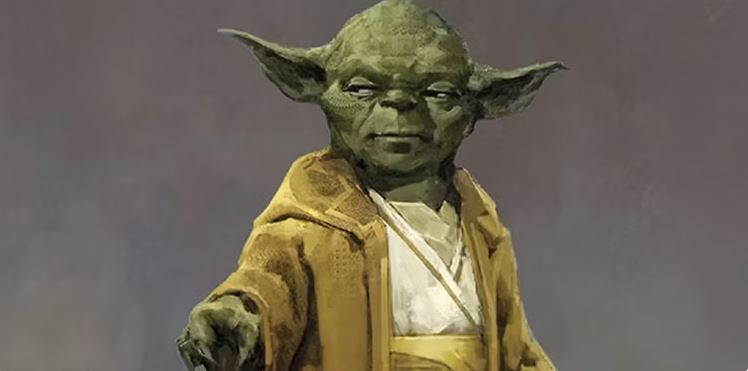The Disney+ Star Wars series, The Acolyte, places its focus squarely on the Jedi Order. The Acolyte takes place in the final days of the High Republic era, and sees the Jedi at the height of their power, 100 years before the events of the Skywalker Saga. The series begins with the murder of a Jedi Master and follows the Jedi assigned to unravel this deadly mystery. However, while the series is one of the most Jedi-heavy pieces of live-action Star Wars media, the Order’s most prominent Master is nowhere to be seen. Despite already being a member of the Jedi Council, Yoda has so far not appeared in The Acolyte.
If The Acolyte showrunner Leslye Headland is to be believed, there is no Yoda cameo waiting for the series finale. Headland confirmed in an interview that Yoda would not appear, implying Lucasfilm is more protective over the use of such major legacy characters in new Star Wars media. While some fans will likely have been hoping to get a look at a slightly younger Yoda in The Acolyte, the Jedi Master’s absence makes sense, given the direction the series’ story is heading. Episode 4, “Day,” included a mention of the Jedi High Council, along with an explanation for why they won’t be getting involved with the Jedi’s current investigation.
Why Master Yoda is Missing From The Acolyte

When asked about the possibility of Yoda turning up in The Acolyte by Comicbook.com, Leslye Headland gave a surprisingly definitive “no,” responding, “Can you imagine if they were like ‘No problem, you can use Yoda. Not a big deal. Go for it?’ No, there is not [a Yoda appearance].” The makers of Star Wars are typically far more evasive when asked about big surprises in their movies and series, such as cameos from major characters. The fact Headland was willing to rule out an appearance from Yoda so clearly suggests there is genuinely no possibility that the popular Jedi Master, who first appeared in Star Wars: Episode V – The Empire Strikes Back, will be appearing in The Acolyte.
The question of a Yoda cameo was not unwarranted, however. Yoda has appeared in other High Republic media, including books, comics and the animated Disney+ series Young Jedi Adventures, aimed at younger audiences. The long-lived Yoda, who is 900 years old by the time of his death in Star Wars: Episode VI – Return of the Jedi, became a Jedi Master long before the beginning of the High Republic era, almost 400 years before The Acolyte is set. His prominence in the Jedi Order by the time of The Acolyte suggests it would not be unusual for Yoda to involve himself in the Order’s investigation into a spate of Jedi murders. However, another Jedi Master is keeping Yoda away from the series’ events.
Vernestra Rwoh is a prominent Jedi Master in the High Republic era, who has risen to a leadership position within the Order by the time of The Acolyte. A more youthful version of the character features in several Star Wars novels set in the High Republic era, showing her eventually losing faith in the Jedi Council after the destruction of Starlight Beacon. The older version of Vernestra, played by Rebecca Henderson in The Acolyte, certainly maintains this distrust of the High Council. In “Day,” she addresses a group of Jedi watching a hologram of Mae, the assassin trained in the dark side of the force who has been killing Jedi. When Ki-Adi-Mundi states that they must alert the High Council, Vernestra shuts down the suggestion, saying “The High Council would be obliged to inform the Senate.”
Vernestra tells her fellow Masters that if word of a Jedi killer — whom she currently believes has been trained by another Jedi — reached the Senate, it would inspire “fear and mistrust.” She opts to keep the Jedi High Council, including Yoda, unaware of the investigation into Mae’s attacks to protect the Jedi from political opposition. This is in keeping with her earlier appearance in the first episode of The Acolyte, “Lost/Found.” At this point in the series, Mae’s twin sister, Osha, a former Jedi, was thought to be the culprit behind Jedi Master Indara’s death. Vernestra warned Master Sol that if word of a former Jedi turning against the Order got out, it could be used against them by their political opponents. Her decision to keep the Council and Yoda away from the investigation continues this thread, showing Vernestra is more concerned with protecting the Jedi’s position in the galaxy than following proper protocols.
Vernestra Rwoh’s Decision Hints at the Jedi Order’s Corruption

As the most outspoken advocate for keeping Mae’s actions a secret, even from others within the Jedi Order, Vernestra Rwoh has become The Acolyte’s icon for the corruption that is beginning to fester within the Jedi Order in the waning days of the High Republic. By the time of the Star Wars prequels, this corruption and politicizing of the Jedi Order has become far more prominent. In order to survive, the Jedi are forced to put the preservation of their political position above transparency and wisdom. This sees them withholding news of their diminishing abilities to touch the Force and accepting a new role as soldiers, leading the Grand Army of the Republic.
The Acolyte is showing this corruption starting to take hold at a time when the Jedi have been blinded by pride and arrogance. After generations of serving a Republic that has expanded across almost the entire galaxy, it has become easy for the Jedi to forget their duty to protect peace and uphold justice for all, instead simply becoming guardians of the Senate’s status quo. Parallels between the story of the twins in The Acolyte and Anakin Skywalker in Star Wars: Episode I – The Phantom Menace suggest the series might even reveal why the Jedi were unable to provide the support and mentorship Anakin needed, treating their own Chosen One with suspicion and distrust.
Throughout the Star Wars prequel trilogy, it is Yoda who steadily becomes the most aware of the problems growing within the Jedi Order. In The Phantom Menace, only Yoda heeds the danger he senses in Anakin’s training, when the rest of the Jedi Council are swayed by fear after Qui-Gon Jinn is killed by Darth Maul. As Obi-Wan Kenobi speaks of the Jedi’s victory on Geonosis in Star Wars: Episode II – Attack of the Clones, Yoda tells him that the outbreak of war is no victory. In Star Wars: Episode III – Revenge of the Sith, Mace Windu ruminates on the possibility that the Jedi may need to remove the Chancellor and seize temporary control of the Senate, while Yoda mourns the dark direction in which such thinking will take the Jedi Order. As The Acolyte is sowing the seeds of the Jedi’s eventual loss of insight and loss of their principles, it makes sense that Yoda is kept distant from the events of the series.
The Acolyte Doesn’t Need Yoda to Tell Its Story

The Acolyte is a series filled with morally gray characters and questions being raised of the Jedi’s right to their position of privilege in the Republic. Behind the search for Mae and her mysterious master is a feeling of paranoia in a Jedi Order that has become too comfortable in power, untouched by any genuine threat to their supremacy for generations. Their course of action is driven by a need to protect themselves as a politicized force that may well find opposition from certain voices in the Senate chamber. This line of thinking, driven by political scheming over a pure connection to the Force, is at odds with what Star Wars fans know about Yoda as one of the greatest Jedi Masters.
The story of deception, cover-ups and mistrust being told in The Acolyte benefits from avoiding Yoda. Characters such as Vernestra Rwoh and Sol are more emblematic of the flaws that have infested the Jedi Order at this time, setting up the Order for its eventual downfall as Palpatine transforms the Republic into the Empire in Revenge of the Sith. While Yoda’s response to the Jedi losing their way is seen in the Star Wars prequel trilogy, The Acolyte focuses on the mistakes that were made throughout the Order, outside the elite ranks of the Jedi Council, prior to the fall of the Jedi.
Leaving Yoda out of The Acolyte may also help preserve the Jedi’s obliviousness to the return of the Sith in the prequels. When Qui-Gon first tells the Jedi Council that he believes he has encountered a Sith Lord in The Phantom Menace, he is dismissed as Ki-Adi-Mundi states the Sith have been extinct for a millennium. While The Acolyte’s fourth episode brought Ki-Adi-Mundi closer to the search for Mae’s master, it has so far been implied that the Jedi do not believe this master could possibly be a Sith.
Even if they do learn the truth, this would likely be covered up by Vernestra and the Jedi facing the Sith Lord, preventing the Council and Masters like Ki-Adi-Mundi from finding out. If Yoda was involved, the Jedi Master’s greater wisdom, insight and moral code would likely lead to him recognizing and sharing word of the Sith’s return. His absence from The Acolyte helps explain why the Jedi were so unprepared to face a Sith Lord in the prequels.
